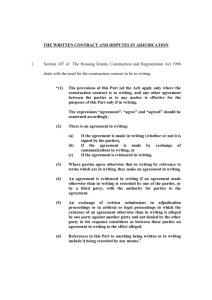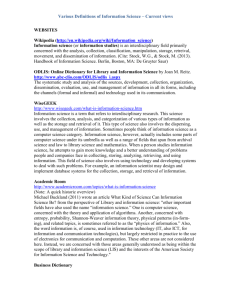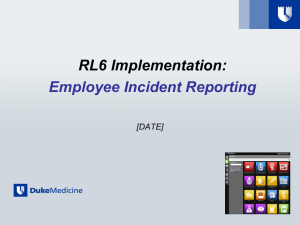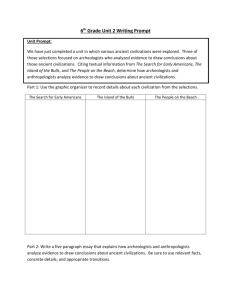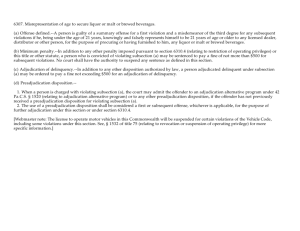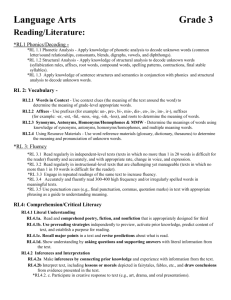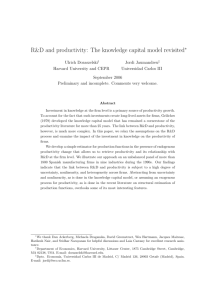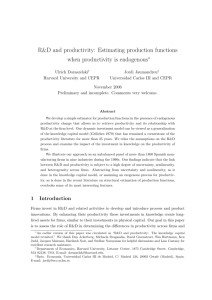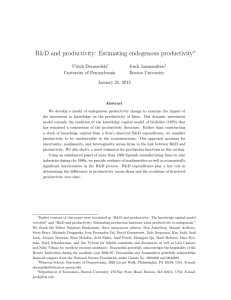Document
advertisement
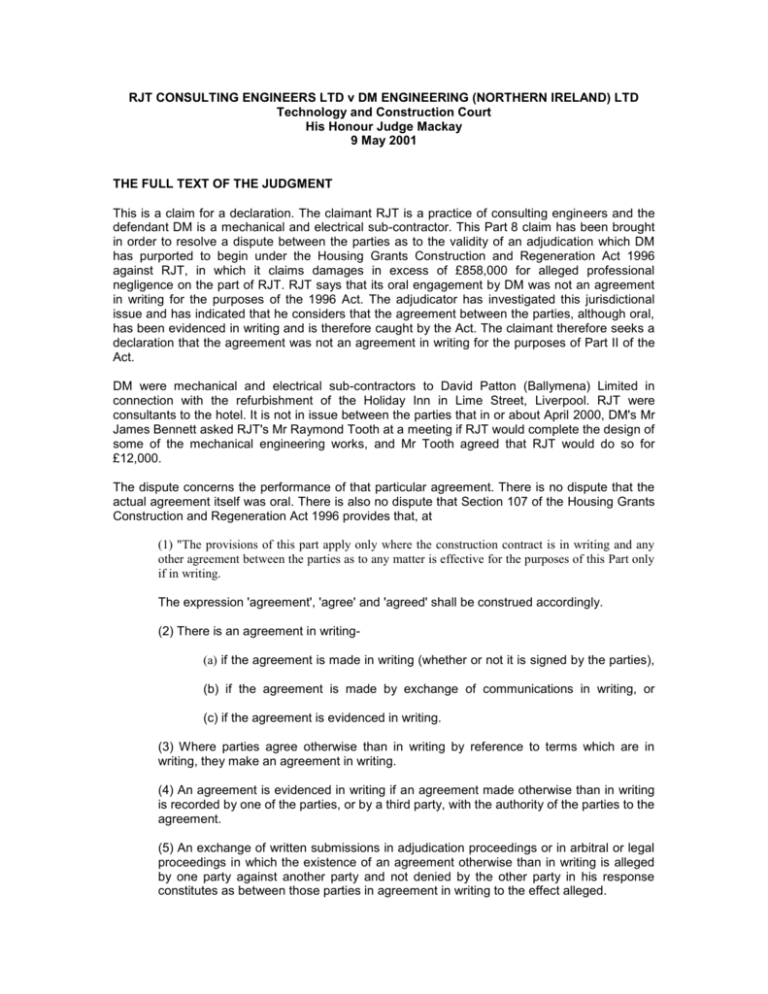
RJT CONSULTING ENGINEERS LTD v DM ENGINEERING (NORTHERN IRELAND) LTD Technology and Construction Court His Honour Judge Mackay 9 May 2001 THE FULL TEXT OF THE JUDGMENT This is a claim for a declaration. The claimant RJT is a practice of consulting engineers and the defendant DM is a mechanical and electrical sub-contractor. This Part 8 claim has been brought in order to resolve a dispute between the parties as to the validity of an adjudication which DM has purported to begin under the Housing Grants Construction and Regeneration Act 1996 against RJT, in which it claims damages in excess of £858,000 for alleged professional negligence on the part of RJT. RJT says that its oral engagement by DM was not an agreement in writing for the purposes of the 1996 Act. The adjudicator has investigated this jurisdictional issue and has indicated that he considers that the agreement between the parties, although oral, has been evidenced in writing and is therefore caught by the Act. The claimant therefore seeks a declaration that the agreement was not an agreement in writing for the purposes of Part II of the Act. DM were mechanical and electrical sub-contractors to David Patton (Ballymena) Limited in connection with the refurbishment of the Holiday Inn in Lime Street, Liverpool. RJT were consultants to the hotel. It is not in issue between the parties that in or about April 2000, DM's Mr James Bennett asked RJT's Mr Raymond Tooth at a meeting if RJT would complete the design of some of the mechanical engineering works, and Mr Tooth agreed that RJT would do so for £12,000. The dispute concerns the performance of that particular agreement. There is no dispute that the actual agreement itself was oral. There is also no dispute that Section 107 of the Housing Grants Construction and Regeneration Act 1996 provides that, at (1) "The provisions of this part apply only where the construction contract is in writing and any other agreement between the parties as to any matter is effective for the purposes of this Part only if in writing. The expression 'agreement', 'agree' and 'agreed' shall be construed accordingly. (2) There is an agreement in writing(a) if the agreement is made in writing (whether or not it is signed by the parties), (b) if the agreement is made by exchange of communications in writing, or (c) if the agreement is evidenced in writing. (3) Where parties agree otherwise than in writing by reference to terms which are in writing, they make an agreement in writing. (4) An agreement is evidenced in writing if an agreement made otherwise than in writing is recorded by one of the parties, or by a third party, with the authority of the parties to the agreement. (5) An exchange of written submissions in adjudication proceedings or in arbitral or legal proceedings in which the existence of an agreement otherwise than in writing is alleged by one party against another party and not denied by the other party in his response constitutes as between those parties in agreement in writing to the effect alleged. (6) Reference in this Part to anything being written or in writing includes its being recorded by any means." The position therefore is that DM has brought adjudication proceedings and RJT say that those adjudication proceedings should not go ahead because the agreement was not in writing. What RJT say is not only was the agreement not in writing but whilst there may be documentation which evidences some agreement being made, the terms of that agreement were not in writing and therefore Section 107 has the effect of making the adjudications inappropriate because the agreement was not in writing, and what RJT say is "Look at the Arbitration Act 1996 and look at Section 40 of the Law of Property Act 1995 and you will see examples there where the courts restrict the operation of the law by the courts to those agreements which fall within the parameters of the requirement of these two Acts", and therefore what we have to do is to apply a definitary view of Section 107, and to that extent a restrictive view of Section 107, because if it is not in Section 107 then the matter is closed. It will be seen that Section 107 is in itself not an exclusive piece of legislation but an inclusive piece of legislation. The purpose of the Act, and in particular Section 107, was to bring in, notwithstanding that agreements were not in writing, those agreements which could be caught by the Act. And so the Act's purpose was to ensure that parties to construction agreements would be able to take advantage of the procedure set out in the Act. What RJT say is that that procedure involves, in Sections 108 to 113, a whole host of requirements which would be entirely inappropriate to them and inappropriate to a contract which was not evidenced in writing and therefore I should adopt definitary approach to Section 107. What the claimants in the adjudication proceedings and the defendants here today say is that the way the Act is managed has been referred to by a number of commentators as a change in the law and as a change in the way the courts must look at such cases, and indeed the commentary to the relevant section in the Current Law series is of interest to that extent. What the defendants to this application say is that the terms of Section 107 are a widening process. In their skeleton argument DM say: "Evidence in writing of a contract dealt with by subsection 107(2)(c) leaves the door open for such evidence to come into existence after the commencement, or even the completion, of the contract's performance. Thus, an invoice submitted by one party to the other may be sufficient evidence, as might a confirmation of verbal instructions set out in the letter." And that is a commentary on the construction contracts by R A Joyce. What the defendants also rely on in their citation of authorities is a comment in a book called A Practical Guide to the Adjudication in Construction Matters by R A Anderson, which says that: "The Act provides that the contract, and any agreement between the parties as to any matter, is effective for the purposes of Part II of the Act only if it is in writing but the definition of 'an agreement in writing' in the Act is extremely wide." And they quote Keating on Building Contracts, 7th edition, which says at 15-15D: "Section 107 gives an extended definition of what constitutes an agreement in writing." And there are a number of other references which leads one to the view that the learned authors on this subject take the view that the purpose of the Act is to include into it all those cases which can be caught. What the defendants say is the court can look at all the written evidence to determine whether or not that evidence is capable of supporting the existence of an agreement between the parties. Nowhere in the Act, they say, is it stipulated that the substance, material consideration, terms, quantities etcetera of the contract must be set out in writing. And what they say is, if an agreement is capable of coming within subsection 2(a) because it is endorsed on the back of a scrap of paper, it is nonsensical that an oral contract which may come within subsection (c) requires greater particularly of terms, and this is an important part of the defendant's submissions. The actual material between the parties by way of written substance is here comparatively great. There is, for example, a fee account from RJT to DM on a number of invoices setting out the nature of the work, the names of the clients and the identity of the place of the work. There are minutes taken during meetings between the experts when the work was to be carried out which clearly identifies the parties and the nature of the work which needed, at those particular times when those minutes were made, to be done. There is also clear reference in the correspondence around the issue of the arbitration to the parties and to the nature of the work. And so what the defendants say is, although Section 40 may have been that way, although the Arbitration Act 1996 may have been that way, this Act is different, and so they say I should view Section 107 in a purposive way. In other words, I should look to see what the section and what the statute was trying to do. And the defendants say that the terms of subsection 5 of Section 107 are of interest because that section deals with adjudication proceedings where a party can be caught by the Act, notwithstanding there being a complete absence of documentation, if the unfortunate party does not resist, does not deny the allegation that there was an agreement and that those adjudication proceedings are relevant. What is said on behalf of RJT is, yes, it says that but notice the words at the end, "to the effect alleged." In other words, what RJT are saying is "Yes, it is informal; yes, it is wide; yes, it is inclusive, but there must be a recitation of the terms of the agreement for it to be caught by the 1996 Act. Merely a reference to the agreement, a reference to the parties, a reference to the place, a reference to the people who are to carry out the work is not enough." And that is an interesting dispute between the parties, is it not? What is my decision? I decide to look at the problems in what Mr Wood described as a purposive way. I look to see what the Act was meant to do and what the Act is trying to do. It seems to me that if I were to find that it is necessary to have a recitation of the terms of an agreement when the existence of the agreement, the parties to the agreement and the nature of the work and the price of the agreement are plainly to be found in documentary form, but nonetheless in a contract worth more than three-quarters of a million pounds because the initial agreement was oral, it is not caught by the Act, then it seems to me such an attempt would run contrary not only to the terms of the Act but contrary to my duty to carry out what I believe to be the law at any particular time. And therefore, adopting that methodology, I hold that it is not necessary to have the terms identified and the extensive documentary evidence in this case is well sufficient to bring it within the adjudication proceedings and therefore I refuse this declaration.


